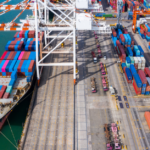In 2024, the international trade landscape experienced serious regulatory changes, with far-reaching implications for logistics, e-commerce, and de minimis rules. These changes highlight a global push to address trade imbalances, enhance revenue collection, and ensure compliance in a rapidly evolving digital marketplace.
One of the most critical developments involved adjustments and updates to de minimis thresholds. These thresholds allow low-value goods to bypass duties and taxes and have been a cornerstone of cross-border e-commerce. However, in 2024, several countries tightened de minimis policies to curb revenue loss and address concerns about unfair competition with domestic retailers. This shift increased administrative complexity for e-commerce sellers and set off demand for stronger customs brokerage and compliance solutions.
E-commerce, the driving force behind many of these changes, continues to grow exponentially. Platforms that once thrived on simplified trade policies now face heightened scrutiny and stricter reporting requirements. For example, marketplaces must increasingly take on the role of importer of record, bearing responsibility for ensuring compliance with customs declarations and tax obligations. This regulatory shift reshapes businesses’ operations, emphasizing the need for efficient systems and experienced logistics providers.
“2024 marked a turning point in international trade, as tightened de minimis thresholds and stricter compliance requirements reshaped e-commerce logistics. In 2025, businesses that prioritize agility, technology-driven compliance, and strategic partnerships will not just adapt but thrive in this evolving landscape.”
Steve Panzarella, President, Global CFS
As we look to 2025, further de minimis reductions are anticipated in several regions, alongside expanded enforcement of import regulations. This will require e-commerce players to adapt swiftly, leveraging technology for seamless customs compliance and exploring innovative solutions such as bonded warehouses and centralized fulfillment hubs to manage costs effectively.
For businesses, the key takeaway is clear: understanding and responding to these regulatory shifts is essential to maintaining competitive advantage. Global CFS offers tailored strategies to help clients navigate the complexities of evolving trade policies, ensuring compliance while optimizing their supply chains.


